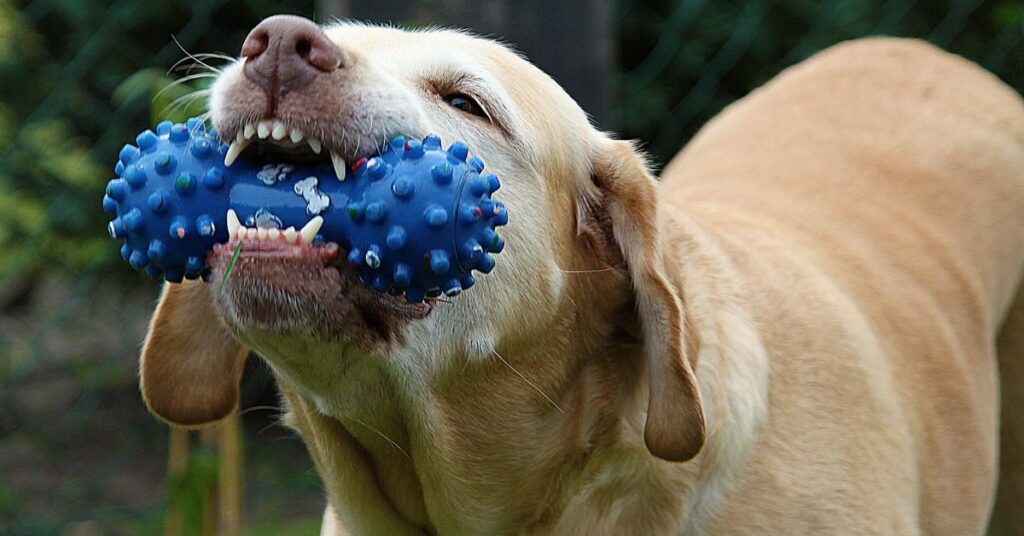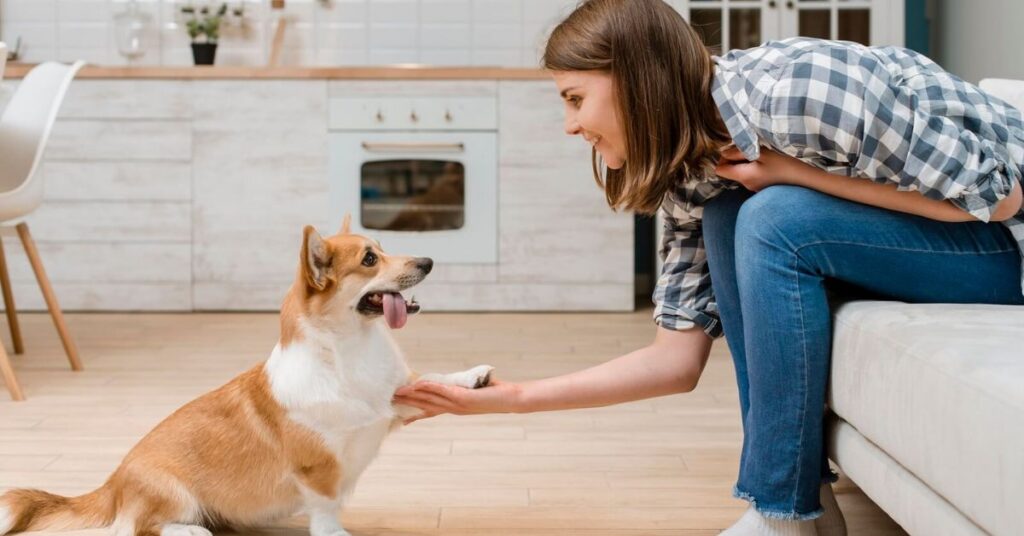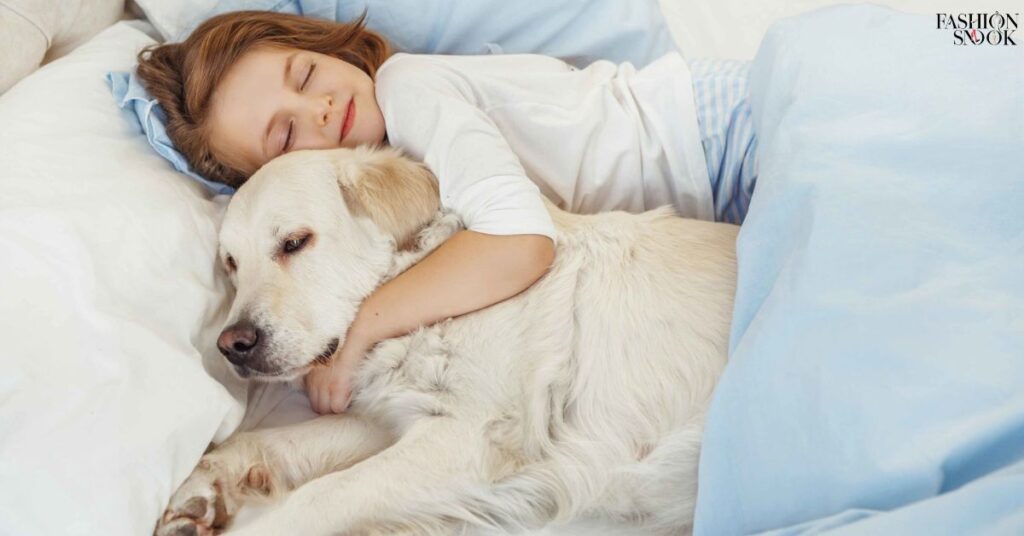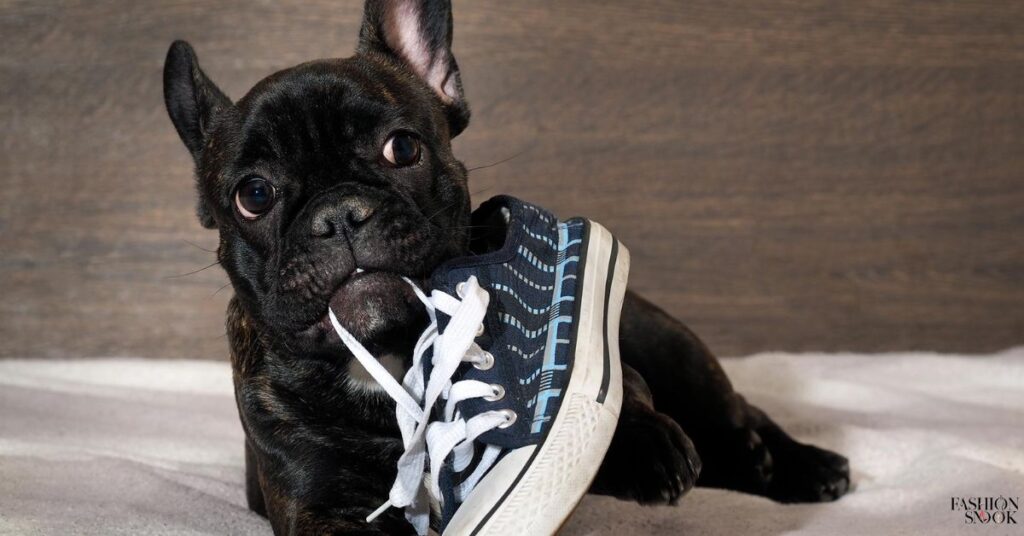Ever wonder why dogs have a fascination with shoes! Well let’s delve into this curious canine behavior. Dogs are attracted to shoes for several reasons. First, they’re drawn to the scent left by their owners which comforts them. Additionally shoes often carry the scent of adventure as they’re worn during walks and outings. Dogs also have a natural instinct to chew and shoes provide a satisfying texture for their jaws.
Furthermore shoes may resemble toys or bones enticing dogs to play with them. However it’s essential to understand that this behavior can be problematic leading to damaged footwear and potential health risks for the dog. Proper training and providing appropriate chew toys can help redirect this behavior positively. So next time you catch your pup eyeing your shoes remember it’s just their way of seeking comfort and fun!
A Nose for Scent
Dogs have an amazing ability to detect scents. With up to 300 million scent receptors their noses are finely tuned instruments. This keen sense of smell makes them exceptional trackers and detectors. For dogs, scent is not just a sense but a vital tool for survival and communication. They can pick up scents from far distances helping them identify objects, animals and people.
Certain breeds are specially trained for scent work aiding in search and rescue missions or detecting drugs and explosives. In medical fields dogs’ noses are even utilized to detect illnesses like cancer or low blood sugar levels in diabetics. Truly a dog’s nose is not just a nose but a remarkable tool that enhances their lives and those around them.
Read This Blog: Explore The Fascinating Life Of Bruce Wilpon Wife | A Tale Of Success
Playing for Attention
Playing is a common way for dogs to seek attention. They enjoy engaging with their owners in playful activities. Dogs may bark, nudge or bring toys to initiate play. Playing strengthens the bond between dogs and humans. It provides mental stimulation and physical exercise. Dogs may exhibit attention seeking behavior when bored or anxious.
Regular plays sessions help fulfill their needs. Positive reinforcement encourages desirable play behaviors. It’s important to establish boundaries and rules during play. Interactive toys can keep dogs entertained and engaged. Overall, playing is a natural and enjoyable way for dogs to interact with their owners.
Relieving the Discomfort of Teething

Teething is uncomfortable for puppies. They chew to alleviate pain. Provide safe chew toys to soothe their gums. Cold toys or treats can help numb discomfort. Monitor them to prevent swallowing small objects. Frozen washcloths are soothing for sore gums. Avoid giving them hard items that may damage teeth. Teething typically lasts from 3 to 6 months. Regular dental check-ups are essential for health. Patience and proper care ease teething discomfort.
Read this Blog Also: What Color Jewelry Should I Wear Quiz
Guiding Paws to Appropriate Behavior

Guide paws to proper behavior through positive reinforcement. Reward desired actions with treats and praise. Redirect inappropriate behavior with gentle correction. Consistency is key in training dogs effectively. Use clear commands to communicate expectations clearly. Patience and love build a strong bond with pets.
Enrichment and Attention
Enrichment and attention are vital for a dog’s well being. Provide stimulating toys and activities for mental stimulation. Spend quality time with your dog daily. Offer praise and affection to reinforce positive behavior. Regular exercise helps maintain physical health and mental balance. A happy, enriched dog is a well-behaved companion.
Providing Appropriate Chew Toys
Choose chew toys made specifically for dogs’ chewing habits. Avoid toys that can splinter or break into small pieces. Look for durable materials like rubber or nylon. Provide a variety of textures and shapes to keep interest. Supervise chewing sessions especially with new toys. Regularly inspect toys for signs of wear or damage.
Managing Boredom
Combat boredom with interactive toys and stimulating activities. Rotate toys to keep interest levels high. Engage in regular play sessions to bond with your dog. Provide mental challenges like puzzle toys or treat dispensers.
Take daily walks to explore new sights and smells. Enroll in obedience classes or agility training for mental stimulation. Spend quality time together to prevent boredom behaviors.
Storage Solutions
Maximize space with storage solutions tailored to your needs. Use bins or baskets to organize small items neatly. Utilize shelves or racks to maximize vertical space. Label containers for easy identification of stored items.
Consider under bed storage or wall mounted options for efficiency. Use vacuum sealed bags for bulky items to save space. Regularly simply to maintain an organized storage system.
They Might Be Anxious or Stressed
Watch for signs of anxiety or stress in your dog. Common signs include pacing, panting or excessive licking. Provide a calm and safe environment to alleviate stress. Offer comforting activities like gentle petting or soothing music. Consult a veterinarian if signs persist or worsen.
Consider behavior modification techniques or anxiety-relieving supplements. Avoid punishing anxious behavior as it may worsen stress. Show patience and understanding to support your dog.
They Might Be Hungry
Notice signs of hunger in your dog’s behavior. Look for pacing whining or begging for food. Stick to a regular feeding schedule to avoid hunger. Offer appropriate portion sizes according to your dog’s needs.
Ensure access to clean fresh water at all times. Consider consulting a veterinarian for dietary recommendations. Avoid overfeeding or feeding table scraps to prevent obesity.
Understanding and Compassion
Understanding and compassion are essential in human interactions. They involve empathy and kindness towards others’ feelings. Being understanding means recognizing and respecting different perspectives and experiences. Compassion entails showing concern and willingness to help those in need. Both qualities promote positive relationships and harmony in society.
They foster mutual respect and acceptance of diversity. Understanding and compassion lead to forgiveness and reconciliation in conflicts. They promote emotional well being and mental health for all. Cultivating these qualities enriches personal growth and fosters a sense of community. Ultimately, practicing understanding and compassion enhances the quality of life for everyone.
Why Some Dogs Like to Sleep or Cuddle with Shoes

Dogs exhibit various behaviors influenced by instincts, comfort and scent familiarity.
Sleeping or cuddling with shoes can be attributed to several factors:
- Comfort and security: Dogs may find the scent and texture of shoes comforting providing a sense of security similar to a familiar blanket.
- Scent association: Dogs have a keen sense of smell and may associate the scent of their owner with safety and comfort making shoes an appealing sleeping or cuddling option.
- Attention seeking behavior: Some dogs may engage in this behavior to seek attention from their owners especially if they receive positive reinforcement or affection when near shoes.
- Teething or chewing habits: Puppies may be drawn to shoes as a teething aid providing relief for their sore gums or fulfilling their natural chewing instincts.
- Separation anxiety: Dogs experiencing separation anxiety may seek out items with their owner’s scent such as shoes to alleviate stress and loneliness when left alone.
- Lack of suitable bedding: If a dog doesn’t have access to a comfortable bed or blanket, they may resort to sleeping or cuddling with shoes as an alternative.
Understanding these factors can help dog owners address any underlying issues and provide appropriate alternatives for their pets’ comfort and well being.
Tips for Preventing a Dog Chewing Shoes

Here are some tips for preventing a dog from chewing shoes:
- Ensure ample exercise and mental stimulation to curb boredom.
- Provide appropriate chew toys to redirect chewing behavior.
- Keep shoes out of reach or stored in closed closets.
- Consistently reinforce positive chewing habits with rewards and praise.
- Use deterrent sprays or bitter tasting substances on shoes.
- Supervise your dog closely especially during teething stages.
- Create a designated chewing area with enticing toys and treats.
- Establish clear boundaries and discourage chewing shoes with firm but gentle corrections.
- Regularly rotate toys and provide new engaging alternatives to maintain interest.
Frequently Asked Questions
Why do dogs like chewing on shoes?
Dogs chew on shoes due to their natural instinct to explore and alleviate teething discomfort.
Can’t my dog distinguish between shoes and toys?
While dogs can differentiate shoes may resemble toys due to texture and scent leading to confusion.
How do I prevent my dog from chewing shoes?
Provide ample chew toys supervise closely and redirect their chewing behavior positively.
Is it normal for dogs to sleep with shoes?
Yes, some dogs find comfort in sleeping with shoes due to scent association with their owners.
Will punishment stop my dog from liking shoes?
Punishment may worsen anxiety or stress leading to continued shoe attraction. Positive reinforcement and redirection are more effective.
Conclusion
Dogs are attracted to shoes for various reasons rooted in their instincts and behavior. Their keen sense of smell allows them to detect familiar scents particularly those of their owners providing comfort and security. Additionally shoes may resemble toys or bones fulfilling their natural chewing instincts and providing mental stimulation. Some dogs may also associate shoes with attention from their owners leading to attention-seeking behaviors.
While this behavior can be frustrating for pet owners understanding the underlying reasons can help address it effectively. Providing appropriate chew toys regular exercise and positive reinforcement are key strategies for redirecting this behavior and ensuring the well being of both dogs and their owners. By catering to their needs and instincts, we can foster healthier relationships with our canine companions and minimize shoe-related incidents.

Grayson, with 5 years of expertise in fashion, brings unparalleled creativity and insight to our website. His keen eye for trends elevates our content to new heights.







